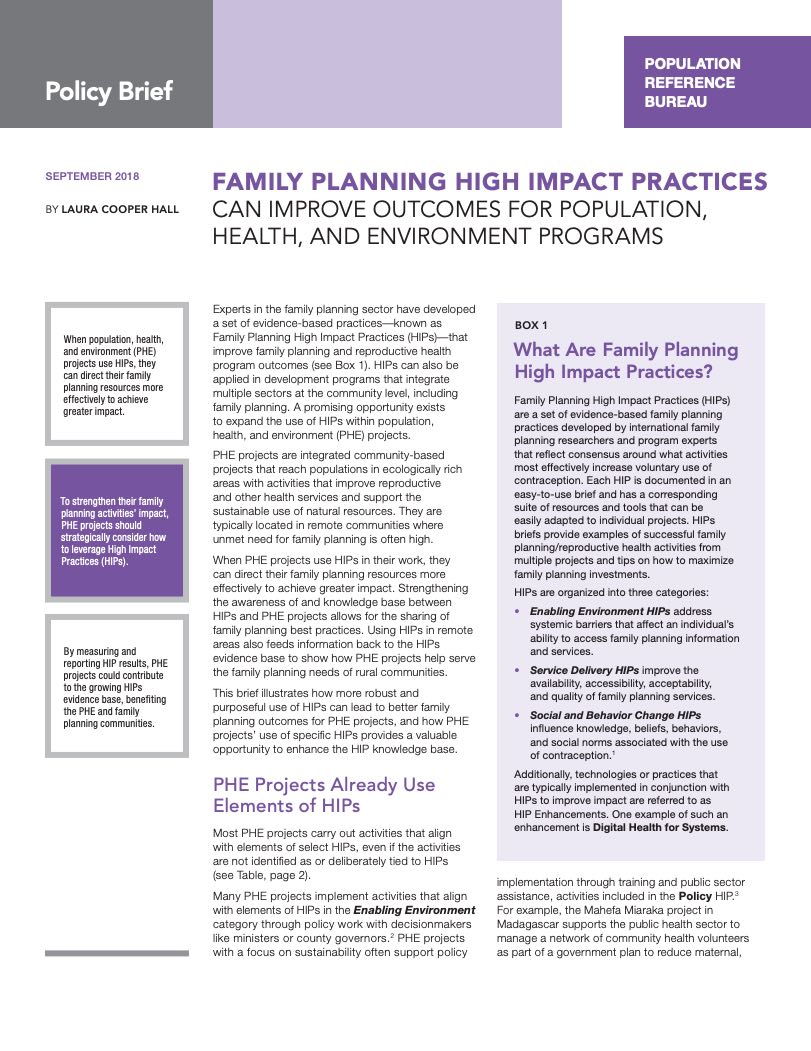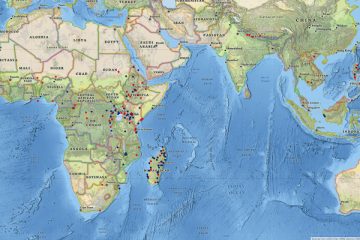
Experts in the family planning sector have developed a set of evidence-based practices—known as Family Planning High Impact Practices (HIPs)—that improve family planning and reproductive health program outcomes.
HIPs can also be applied in development programs that integrate multiple sectors at the community level, including family planning. This policy brief explores the promising opportunity that exists to expand the use of HIPs within population, health, and environment (PHE) projects.
The web feature accompanying this policy brief presents more information and case studies on opportunities to expand the use of HIPs within PHE projects.
When PHE projects use HIPs in their work, they can direct their family planning resources more effectively to achieve greater impact. Strengthening the awareness of and knowledge base between HIPs and PHE projects allows for the sharing of family planning best practices. Using HIPs in remote areas also feeds information back to the HIPs evidence base to show how PHE projects help serve the family planning needs of rural communities.
This brief and web feature illustrate how more robust and purposeful use of HIPs can lead to better family planning outcomes for PHE projects, and how PHE projects’ use of specific HIPs provides a valuable opportunity to enhance the HIP knowledge base. The brief’s case study and the web feature’s additional case studies and videos examine how some PHE projects are already applying HIPs and make recommendations on how the projects’ family planning outcomes could be strengthened by greater and conscious application of additional HIPs. These products serve as a starting point for collaboration between the PHE and family planning communities, with a goal of catalyzing conversations about how intentional use of the HIPs can help PHE projects achieve stronger family planning outcomes, and how increased knowledge of PHE projects’ family planning work in rural areas can better inform the HIPs.

 ">
"> ">
">

